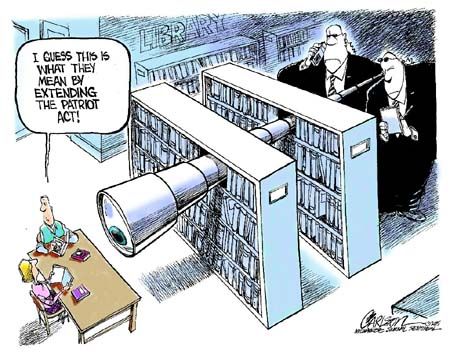This is your morning Open Thread. Pour your favorite beverage and review the past and comment on the future.
Find the past “On This Day in History” here.
Click on image to enlarge
May 27 is the 147th day of the year (148th in leap years) in the Gregorian calendar. There are 218 days remaining until the end of the year.
On this day in 1813, former President Thomas Jefferson writes former President John Adams to let him know that their mutual friend, Dr. Benjamin Rush, has died.
Rush’s passing caused Jefferson to meditate upon the departure of the Revolutionary generation. He wrote, We too must go; and that ere long. I believe we are under half a dozen at present; I mean the signers of the Declaration.
Despite their close friendship, Jefferson wrote that he and Adams were often separated by “different conclusions we had drawn from our political reading.” The two maintained their friendship despite their political differences until 1801, the year that Jefferson became president. As Jefferson wrote Mrs. Adams: “I can say with truth that one act of Mr. Adams’s life, and one only, ever gave me a moment’s personal displeasure.” By this, Jefferson was referring to last-minute political appointments made by Adams just before Jefferson succeeded him as president. Jefferson wrote that the appointments “were [selected] from among my most ardent political enemies” who could be counted on to work against his executive authority. Jefferson admitted to “brooding over it for some little time,” and during this period, they ceased writing one another.
A Reconciliation
When Jefferson retired from the presidency in 1809, Dr. Benjamin Rush, a signer of the Declaration that Adams and Jefferson worked to create, took it upon himself to renew their suspended friendship. He had no success until 1811, when one of Jefferson’s neighbors visited Adams in Massachusetts. The neighbor returned to Virginia with the report that he had heard Adams say, “I always loved Jefferson, and still love him.” In response to these words, Jefferson wrote Dr. Rush: “This is enough for me. I only needed this knowledge to revive towards him all of the affections of the most cordial moments of our lives.” He asked Rush to persuade Adams to renew their correspondence. A letter from Adams was forthcoming, and they continued to write until their deaths.
This reconciliation began a rich correspondence that touched on myriad topics, from reminiscences about their contributions to the young nation’s history, to opinions on current political issues, to matters of philosophy and religion, to issues of aging. Their letters were also lighthearted and filled with affection. Jefferson wrote, “I have compared notes with Mr. Adams on the score of progeny, and find I am ahead of him, and think I am in a fair way to keep so. I have 10 1/2 grandchildren, and 2 3/4 great-grand-children; and these fractions will ere long become units.”
A Lasting Legacy
After fifteen years of resumed friendship, on July 4, 1826, Jefferson and Adams died within hours of each other. Their deaths occurred — perhaps appropriately — on the fiftieth anniversary of the signing of the Declaration of Independence. Unaware that his friend had died hours earlier, Adams’ last spoken words were “Jefferson still survives.”

 “Punting the Pundits” is an Open Thread. It is a selection of editorials and opinions from around the news medium and the internet blogs. The intent is to provide a forum for your reactions and opinions, not just to the opinions presented, but to what ever you find important.
“Punting the Pundits” is an Open Thread. It is a selection of editorials and opinions from around the news medium and the internet blogs. The intent is to provide a forum for your reactions and opinions, not just to the opinions presented, but to what ever you find important. 


 On this day in 1775,
On this day in 1775,  Hancock was president of Congress when the
Hancock was president of Congress when the 

Recent Comments